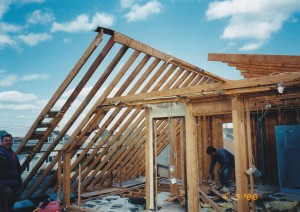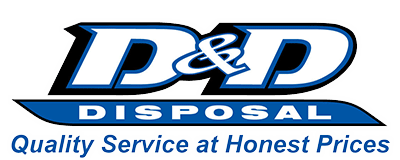 So, you have a project you are planning. It requires some demolition work and you have decided that you are going to tackle the job yourself. Here are a few do’s and don’ts that will help you get through your project smoothly and safely.
So, you have a project you are planning. It requires some demolition work and you have decided that you are going to tackle the job yourself. Here are a few do’s and don’ts that will help you get through your project smoothly and safely.
The Do’s:
First, make sure you have the proper safety equipment. The basics include eye protection, a hard hat, strong work gloves and work boots to protect your feet. These are necessities and should be worn on every demolition project. Demolition zones are dynamic places with lots of things going on at once. There can be power tools running, hammers being swung and lots of stuff falling. This creates an area where common sense rules. You need to protect your eyes from flying debris (we recommend goggles for full front and side protection). For your hands, a good pair of leather palmed gloves should do the trick. You want to make sure you are protected from the many sharp things you will encounter such as nails, broken wood, tile, etc… For your feet, we recommend steel toe boots. If something falls onto your feet, your toes will thank you later for this modest investment.
Second, make sure you are physically capable of the task at hand. You don’t want to spend the next month of your life in bed nursing a broken limb or a bad back. That would make any project too costly to undertake. Be realistic with yourself. Have you ever done this type of work? Do you have limitations that may prevent you from completing the job? If you can’t finish, do you have a backup plan? If you have physical limitations such as a bad back or bad shoulders, etc. I would recommend not overworking yourself. Nothing says you can’t do the job, it just might take you a little longer to get it done safely.
Third, make sure you know how to operate any power tools you are planning to use. Electric saws, sawzalls and the like can do major damage to the body in no time flat. Take an inventory of all the tools you will need during the job and make sure you are familiar with the operation and safety procedures for each tool you will be using. If you are unfamiliar with a tool and how to operate it, ask someone at the store to give you a demonstration of how the tool operates. Never use a tool without proper training. Power tools are fast and unforgiving.
The Don’ts:
First, don’t take on a job that is beyond your ability. If you don’t know how to get it done safely and correctly, it is time to call in a professional. We have all seen the funny videos of people cutting things inside their home only to have half of a room collapse on top of them. Don’t be another video! The damage that can be done by an inexperienced operator can greatly exceed the cost difference of hiring a properly trained professional.
Second, don’t ever demolish load bearing structures without proper shoring and bracing. If you don’t understand how the load of a building is dispersed throughout and how it all fits together, you are probably not suited to do any demolition beyond basic gutting and stripping. The last thing you want to see is your home sag and your walls crack because someone accidentally cut a load bearing beam.
Finally, don’t ever, EVER use a power tool you do not know how to operate. This is so important, it makes both lists. Do make sure you are trained, and Don’t ever use a tool you are not trained in using. In the end, you have to ensure the safety and wellbeing of those individuals who would be attempting the work. There is no home improvement project worth a trip to the emergency room. I want to relay the story of one of my customers to you. We will call him Sam for the sake of privacy;
Sam bought a new house and did a major renovation of the home. He hired professionals to do the work and the project lasted about one year. Sam moved into his new home and continued on with his life. One day, Sam decided to do another small renovation on his home. He decided to do the work himself because it was such a simple job. He got his hand caught in a chop saw and his hand was cut off. After 9 surgeries to re-attach and repair his hand, he has very little use of his hand anymore. He has since lost his job and is now downsizing into a smaller home he can afford. This tragic story is played out over and over and over again. Don’t be another story.
To summarize, if you are thinking of taking on a demolition project on your own, ask yourself these 4 simple questions:
1. Am I physically capable of doing the work?
2. Can I get the job done safely?
3. Do I have enough training to use the tools necessary to complete the work?
4. Do I have enough knowledge to complete the project safely?
If you answered yes to these questions, I wish you the best of luck on your project and remember to take it slow and safely!!
Be safe, be well and most of all BE HAPPY!

